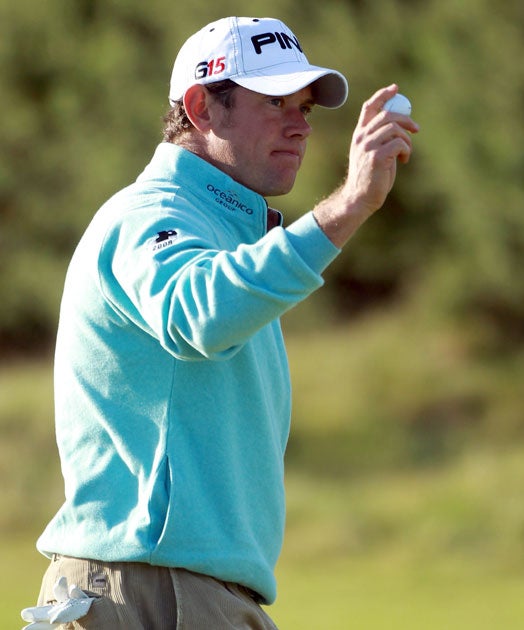James Lawton: It took a while, but Lee Westwood deserves credit

Even though the fuss over Lee Westwood's rise to No 1 could be over almost before it has begun, it is no reason to dim the celebration when he tees off with Phil Mickelson in Shanghai for the World Championship tournament in the small hours of tomorrow morning.
His playing partner might just find one of his periodic eruptions of brilliance and plunge him back into the ranks. Tiger Woods could climb back to the top, nourishing the green shoots of recovery which Westwood thought he saw in the Ryder Cup. The German semi-wunderkind Martin Kaymer might come crashing through.
Yet not one of them has the power to diminish the extent of Westwood's achievement spread over a few years and marked by a remarkable resolve to make something more of a career that he finally saw was lapsing into a comfort zone of wealth and well-being supported by a natural-born talent – but not the distinguishing mark of a great champion, a burning and bloody resolve to inflict his gifts whatever his form or his mood.
If you want to be judgemental you can say it is a pity he didn't find a new dimension for his ambition somewhat earlier, say 10 years earlier, in which case he might not now still be pursuing the major title that has so often appeared to be within the range of his ability. If you say this, though, you will be merely echoing the words of arguably the most fanatical, and maybe sanctimonious, critic to be found on or off a fairway.
Back in 1997 Gary Player made a blistering comparison between Westwood and his friend Darren Clarke. He said that both of them were enjoying too quickly the fruits of early success. He cited Clarke's cigar and Westwood's girth and then spoke of something else he had seen earlier that day. It was Tiger Woods going to the gym. "He's building his strength, he's investing in his future," said the man who has been known to provide a stream of consciousness on both the golf swing and the meaning of existence lasting several hours and without any perceptible drawing of breath. However, if Westwood didn't like what he heard, few others were able to resist the fact that there was plainly something of value in what was being said.
After the days of Ballesteros and Faldo, Lyle and Woosnam and Olazabal, it was indeed as though a great blanket of contentment had descended upon the pick of a new generation. They might be good enough to win majors but, if they didn't it was hardly possible, given the level of their gifts, to stop the money flowing in.
Westwood was approaching his mid-thirties when he stopped and looked at himself, more truly he confessed, than perhaps ever before. He saw a man with an enviable life but one also lacking a hard edge – or the re-assurance that he had worked hard enough, hurt hard enough, to win some of the biggest prizes that had been set before him.
At 37, Westwood may find the ultimate quest for a major title elusive. He may still mourn the years when he was a little too easy on himself. Heaven knows, it would not place him in a unique position, and certainly not in the age of English football extravagance and underachievement.
Yet there will now, whatever happens in the next few years, always be some high quality solace. Before it was reasonable to say that it was too late, he reached out to find the best of himself. In the end, even Gary Player could ask for no more.
Subscribe to Independent Premium to bookmark this article
Want to bookmark your favourite articles and stories to read or reference later? Start your Independent Premium subscription today.

Join our commenting forum
Join thought-provoking conversations, follow other Independent readers and see their replies